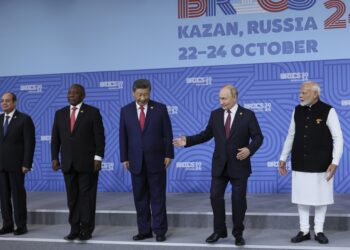The Cuban government revealed on Tuesday that a possible strengthening of the U.S. embargo or the reactivation of Title III of the Helms-Burton Act will encounter “strong resistance” from its trade partners, including Canada, Spain and other European countries.
“We are sure that the savagely extraterritorial application of the blockade not only arouses a huge international rejection, but will face a strong resistance from our economic, investment, financial and tourism counterparts,” Cuban Foreign Minister Bruno Rodríguez said at a press conference.
The Donald Trump Administration, opposed to the rapprochement to Cuba initiated by his predecessor, Barack Obama, is threatening to reactivate Title III of the Helms-Burton Act that would allow Cuban-Americans to claim before U.S. courts properties that were expropriated after the Cuban Revolution led by Fidel Castro.
That regulation would open the doors for Americans, including naturalized Cubans, to sue before U.S. courts the companies that are benefiting from properties in Cuba that were theirs before the Revolution.
The title has been suspended periodically since its creation in 1996 by all U.S. administrations precisely because of the resounding rejection it provoked in countries that are Washington’s allies, which saw their interests on the island threatened.
“I know of a strong opposition from many member states of the European Union and other nations, I have seen some statements. I also know about vast diplomatic exchanges and I am convinced that these nations are going to defend their national interest and that of their companies and citizens,” Rodríguez said at a press conference in which he also denounced a possible military aggression by Washington against Venezuela and denied that Cuba had troops in the South American nation.
He added: “I am sure they will consider unacceptable the attempt to establish discriminatory forms in favor of American companies against their national interests.”
The countries that do business with Cuba “have on their side international law, the existence of antidote laws that should also be applied according to their own legal system, and international circumstances…,” said the head of Cuban diplomacy.
In the face of the possible reactivation of Title III and the application of new sanctions that would strengthen the more than half-a-century-old embargo, the foreign minister affirmed that Cuba “is prepared.”
“We have an economic plan projected until 2030, the Cuban economy has a strong international backing, our economic relations are diverse, we also count on the prevalence of international law, free trade regulations and freedom of navigation,” he said.
In 2017, following Trump’s arrival, Washington toughened the embargo through a decree that bans U.S. companies and citizens from doing business with companies linked to the armed forces and intelligence, a long list of firms that include dozens of hotels.
It also restricted the modalities under which Americans can visit Cuba, where citizens of that country are not yet allowed to travel as tourists.










